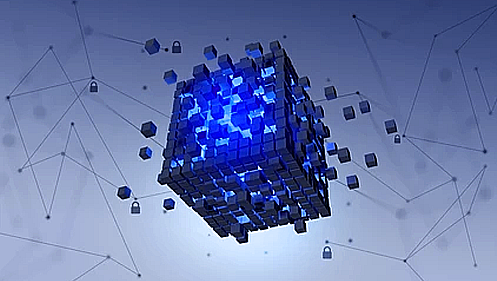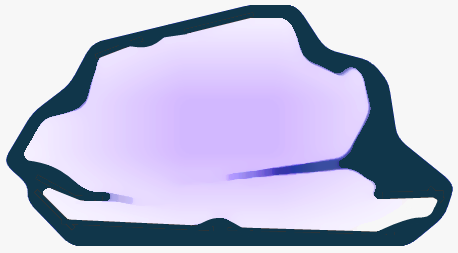Accredited InvestorsAltcoinAnatoli UnitskyAnti-Money Laundering (AML) In CryptoAPIArbitrageArtCoin TokenArticle DirectoryASICAuction Terminology GlossaryBasics of Stock Market InvestingBear MarketBest Crypto Payment Provider In the WorldBitcoinBlockchainBlockchain ConfirmationBlockchain Consensus MechanismBlockchain ForkBlockchain GlossaryBored Ape Yacht ClubBuild a Business That OutperformsBull MarketBuying SkyWay SharesByzantine Fault Tolerance (BFT) ExplainedCasascius CoinCentral Bank Digital Currency (CBDC)Centralized Crypto ExchangeCoinCoinsetCold WalletCollateralCommodity Futures Trading Commission (CFTC)Cross-Chain TechnologyCRUCrypto ExchangeCrypto GlossaryCrypto JokesCrypto Terms to KnowCrypto TickerCryptocurrencyCryptographyCryptojackingCryptounit BlockchainCryptounit GlossaryCryptounit ProgramdApp (Decentralized Application)Dead CoinDecentralized Exchange (DEX)Decentralized Finance (DeFi)Difference Between Bitcoin and EthereumDifferent Ways of Investing MoneyDigital CurrencyDistributed LedgerDo Your Own Research (DYOR)Dollar Cost Averaging (DCA)Dow Jones Industrial Average (DJIA)EncryptionERC-20ERC-721EthereumEvoScentFear Of Missing Out (FOMO)Fear, Uncertainty and Doubt (FUD)Fiat MoneyFNT Fintech CompanyGenesis BlockGlobal Unit PayGlossary of Banking TermsGlossary of Business TermsGlossary of Financial TermsHalvingHODLHot WalletHow Do I Start InvestingHow Rich is Satoshi Nakamoto?How to Create a BlockchainHow to Find Private InvestorsHow to Get Into FintechHow to Program Smart ContractsI Am Thrilled to Be a Part of This Global ProjectInitial Coin Offering (ICO)Initial Public Offering (IPO)Initial Token Offering (ITO)Innovation Basalt TechnologyInnovative Transportation TechnologiesInternational Bank Account Number (IBAN)Investing in Gold Mining StocksInvesting in Gold MiningJagerJoy of Missing Out (JOMO)Know Your Customer (KYC)LedgerLiquidity in CryptocurrencyMaker and Taker Fees in Crypto TradingMarket Capitalization (Market Cap)Meme CoinMetal Credit CardMetaMaskMillenials Now Have Access to Generational WealthMy Best Investment EverNew Digital EvolutionNFT GlossaryOff-Chain TransactionsOn-Chain TransactionsOpen Edition NFTPeer-to-Peer (P2P)Personal Loan GlossaryProbably the Best STO on the MarketProof of Stake (PoS)Real Estate Glossary of TermsReal Estate Investing GlossaryRebase TokenSecurities and Exchange Commission (SEC)Security Token ExchangesSecurity Token Offering (STO)Soulbound Decentralized Identities for Security TokensSoulbound ID Launch by Stobox Proves a SuccessSoulbound TokensStoboxStock Market GlossaryTestimonialsTether Platform and Token (USDT)UnitEx ExchangeUnitsky String TechnologiesUNTBUSDUValidatorWe Started Investing When We Were 25What are Blue Chip NFT?What are Blue Chip Stocks?What are Crypto Assets?What are Crypto Smart Contracts?What are CryptoPunks NFT?What are Digital Assets?What are Digital Collectibles?What are Gas Fees?What are Gas Wars?What are Hashmasks?What are Non Fungible Tokens?What are Non-Sufficient Funds (NSF)?What are Soulbound Tokens (SBT)?What are Stablecoins in Crypto?What are Transactions Per Second (TPS)?What are Utility NFTs?What are Utility Tokens?What Does Burning Crypto Mean?What Does Diamond Hands Mean?What Does Paper Hands Mean?What Does To The Moon Mean?What Does WAGMI Mean?What Happened to Satoshi Nakamoto?What is a 51% Attack?What is a Baby Boomer?What is a Backlink?What is a Banner?What is a Barcode?What is a Bid-Ask Spread in Crypto?What is a Block in Blockchain?What is a Block Reward?What is a Blockchain Address?What is a Blockchain Node?What is a Blockchain Oracle?What is a Blog?What is a Bond?What is a Bot?What is a Broker?What is a Business Accelerator?What is a Cash Cow?What is a Commercial Bank?What is a Commodity?What is a Con?What is a Credit?What is a Credit Limit?What is a Credit Rating?What is a Crypto Airdrop?What is a Crypto Bridge?What is a Crypto Scam?What is a Crypto Token?What is a Crypto Wallet?What is a Crypto Whale?What is a Crypto Winter?What is a Cryptocurrency Public Ledger?What is a Cryptocurrency Roadmap?What is a DAO?What is a Dark Pool?What is a Day Trader?What is a Dead Cat Bounce?What is a Default?What is a Derivative?What is a Digital Credit Card?What is a Fiscal Quarter?What is a Fungible Token?What is a Governance Token?What is a Grace Period?What is a Hard Fork?What is a Hot Wallet?What is a Hybrid Blockchain?What is a Hybrid PoW/PoS?What is a Joint Account?What is a Market Cap?What is a Merkle Tree in Blockchain?What is a Mining Farm?What is a Nonce? What is a PFP NFT?What is a POS System?What is a Prepaid Card?What is a Private Blockchain?What is a Private Key?What is a Public Blockchain?What is a Public Key?What is a Reserve Currency?What is a Ring Signature?What is a Routing Number?What is a Rug Pull in Crypto?What is a Safe Deposit Box?What is a Satoshi?What is a Security Token?What is a Seed Phrase?What is a Shitcoin?What is a Sidechain?What is a Soft Fork?What is a Spot Market?What is a State Bank?What is a SWIFT Code?What is a Tax Identification Number (TIN)?What is a Time Deposit?What is a Transaction Account?What is a Variable Interest Rate?What is a Virtual Assistant (VA)?What is a Virtual Card?What is a Virtual Currency?What is a Visa Card?What is a Whitelist in Crypto?What is a Whitepaper?What is Accounts Payable (AP)?What is AMA in Crypto?What is Amortization?What is an Accrual?What is an ACH Transfer?What is an Actuary?What is an Addendum?What is an Algorithm?What is an Angel Investor?What is an Annuity?What is an Asset?What is an ATM?What is an Atomic Swap?What is an Audit?What is an Avatar?What is an EIN?What is an Embargo?What is an Entrepreneur?What is an IDO (Initial Dex Offering)?What is an Interest Rate?What is an Internet cookie?What is an Investment Bank?What is an NFT Drop?What is an NFT Floor Price?What is an Ommer Block?What is an Orphan Block?What is an Outstanding Check?What is an Overdraft?What is Artificial Intelligence (AI)?What is B2B (Business-to-Business)?What is B2G (Business-to-Government)?What is Bartering?What is Bitcoin Dominance?What is Bitcoin Pizza Day?What is Blockchain Immutability?What is Blockchain Used For?What is BRICS?What is Business-to-Consumer (B2C)?What is C2C (Customer to Customer)?What is Capitalism?What is Catfishing?What is CFD Trading?What is Check Kiting?What is Cloud Mining?What is Communism?What is Content Marketing?What is Decentralization in Blockchain?What is DeFi in Crypto?What is Delisting?What is Depreciation?What is Digital Marketing?What is Diversification?What is Double Spending?What is Dumb Money?What is Dumping?What is Earnings Per Share (EPS)?What is Economics?What is Email Marketing?What is Equity?What is Etherscan?What is Fintech?What is Foreign currency?What is Forex?What is Fundamental Analysis (FA)?What is GameFi?What is Generative Art NFT?What is Gwei?What is Hard Currency?What is Hash Rate?What is Hashing in Blockchain?What is Inflation?What is Initial Game Offering (IGO)?What is Interest?What is Interest Income?What is Mainnet?What is Mastercard?What is Metaverse in Crypto?What is Mining in Cryptocurrency?What is Minting NFT?What is Mobile Banking?What is Money Laundering?What is NFT Alpha?What is NFT Metadata?What is NFT Rarity?What is NGMI Meaning?What is Nominal Interest Rate?What is Online Banking?What is Open-End Credit?What is OpenSea NFT Marketplace?What is Personal Identification Number (PIN)?What is Play-to-Earn?What is Polygon?What is Proof of Authority (PoA)?What is Proof of Work (PoW)?What is Public Key Cryptography?What is Pump and Dump?What is Quantum Computing?What is Refinancing?What is Retail Banking?What is Ripple?What is Sharding?What is Slippage in Crypto?What is Smart Money?What is Solvency?What is Soulbound ID?What is SSL?What is Staking in Cryptocurrency?What is Technical Analysis (TA)?What is Testnet?What is the Ask Price?What is the Better Business Bureau (BBB)?What is the Bid Price?What is the Dark Web?What is the InterPlanetary File System (IPFS)?What is the Gold Standard?What is the Lightning Network?What is the Prime Rate?What is the Sandbox?What is the Secondary Market?What is the World Bank?What is Tier 1 Capital?What is Tokenomics?What is TRC-20?What is Universal Banking?What is Unspent Transaction Output (UTXO)?What is Usury?What is Volatility in Crypto?What is Wash Trading?What is Web3?What is Whisper?What is XRP?What is Zero-Knowledge Proof (ZKP)?Who is Beeple?Who is Satoshi Nakamoto?Who is Vitalik Buterin?Why Tokenization is a Safe HavenWhy You Should Try Your Hand at Trading
What is Blockchain Used For
- Home
- Article Directory
- What is Blockchain Used For
The world is full of high-tech solutions, but none has been as revolutionary for the digital world as blockchain technology. Blockchain is a distributed ledger technology that allows users to securely record transactions across multiple parties with no need for a central authority or third party intermediary.

It utilizes an immutable chain of blocks containing data records, which are cryptographically chained together and secured using cryptography. I know that sounds complicated but think of it as a digital ledger that can be used to store and record transactions, contracts, and more. Like the name suggests, a blockchain is made up of multiple blocks linked together.
What is a Block?
So far, we’ve talked about blockchain as a whole, but the individual blocks that make up the chain are quite important. Each block contains data records and are cryptographically linked to each other. This is why it’s considered a secure system: no one can alter any of the information within the chain without being detected.
What is Blockchain Used For?
The beauty of blockchain technology lies in its versatility. It can be used for a variety of applications such as tracking assets, identity management, smart contracts, digital payments, supply chain transparency and much more. Financial transactions are one of the most common uses for blockchain technology; however, due to its decentralized nature and cryptographic security, it can also be used for applications such as voting. Let's take a look at 7 applications of blockchain in detail.
1. Smart Contracts
Smart contracts are digital agreements that bind all the participants in a particular transaction. Through blockchain technology, these contracts are stored securely and can be automated, so there is no need for third-party intermediaries. Smart contracts can streamline complex transactions and eliminate processing costs associated with traditional contract methods.
How do smart contracts use the blockchain?
Smart contracts are written into blocks on the blockchain and are executed when certain conditions are met. They are encoded with a preset set of rules that must be followed for the contract to execute, including signatures from all involved parties. This secure method allows contracts to be processed without any need for third-party intermediaries or middlemen, eliminating costs and streamlining transactions.
2. Supply Chain Transparency
Supply chain transparency is becoming increasingly important in today’s world as consumers become more aware of where their products come from and how they were made. Blockchain technology can provide end-to-end traceability throughout the entire supply chain process. By using cryptographic hashes, each block can store information specific to a product, including its origin, shipping details, and other relevant information. This allows the consumer to easily track their purchased items from start to finish.
3. Identity Management
Identity management is an important part of today’s digital world; however, it can be difficult to keep track of multiple identities across various platforms. With blockchain technology, users can store their personal data securely on the chain and have full control over who can access it. It eliminates the need for third-party authentication services such as passwords or fingerprints and provides users with better security when accessing online services.
4. Digital Payments
Digital payments are becoming increasingly popular, and blockchain technology has enabled them to become more secure. Cryptocurrencies such as Bitcoin are based on this technology and are decentralized, meaning there is no need for a third-party intermediary such as a bank to process transactions. Payments can be made quickly and securely without any fees or delays.
Digital payments use the blockchain to securely store and transfer funds from one user to another. The blockchain uses cryptography to ensure that all transactions are secure, making them virtually impossible to be hacked or manipulated. Payments are also processed quickly and without any need for third-party intermediaries.
5. Data Security
Data security is of utmost importance in today’s digital world, and blockchain technology can provide an extra layer of protection against malicious attacks. By using cryptographic algorithms, data stored on the chain can be encrypted and thus protected from unauthorized access or tampering. With blockchain technology, users can securely store sensitive data and have full control over who can access it.
6. Healthcare
The healthcare industry is also beginning to embrace the potential of blockchain technology. By using distributed ledger technology, data can be securely stored and tracked with secure access levels for different stakeholders. This allows patients to have full control over their own health records, granting them access only when necessary. Healthcare providers can also use the immutable nature of the blockchain to track medications and treatments from start to finish.
7. Voting
Voting is an important part of democracy, but voter fraud remains a major issue in many countries around the world. Blockchain technology provides a way for governments to securely store and track votes without fear of manipulation. By using digital signatures and cryptographic algorithms, each vote can be tracked and verified to ensure accuracy and fairness in the voting process.
How Could Blockchain Be Used in the Future?
As technology continues to advance, more and more applications for blockchain will become available. For example, it could be used to create smart cities with automated utilities and traffic control systems that run on its peer-to-peer architecture. It could also play a role in data storage solutions, allowing users to store their data securely without relying on a third-party provider. Additionally, blockchain could be used to create new digital currencies which can be exchanged between users without any central authority or middleman involved.
Final Thoughts
Overall, blockchain technology has immense potential to revolutionize how data is stored, managed, and protected in many industries. From supply chain transparency to secure digital payments, healthcare records to voting systems, blockchain technology provides a reliable way for individuals and businesses alike to take advantage of its benefits. Despite its current limitations, blockchain technology is only growing in popularity thanks to its numerous advantages over traditional methods. With more advances on the horizon, it's clear that this revolutionary technology will continue to transform the world.
Related Articles

Blockchain Confirmation
In traditional banking systems, when you perform a money transfer using fiat currencies, you receive a transaction receipt as evidence of a legitimate and completed transfer.

Blockchain
Blockchain has been a major tech topic over the past 10 years, with widespread discussion but limited understanding of its concept and operation.

Blockchain Consensus Mechanism
Blockchain consensus mechanisms enforce a set of rules to synchronize members or nodes in decentralized networks, thereby ensuring the functionality and trustworthiness of cryptocurrency and blockchain technology.

What is Blockchain Immutability?
One of the key benefits that blockchain advocates emphasize is the capacity of a blockchain ledger to maintain an unchanging, indestructible, and permanent record of transactions.
- Home
- Article Directory
- What is Blockchain Used For